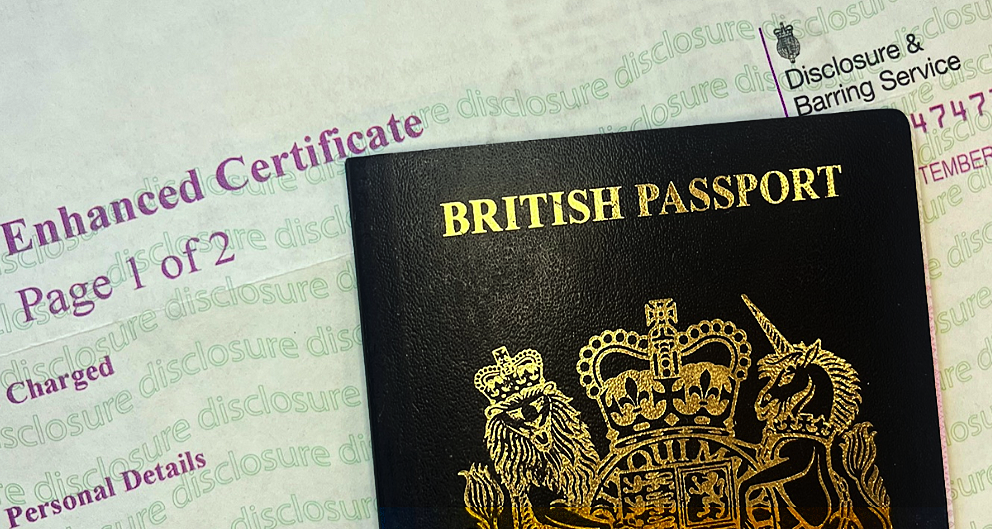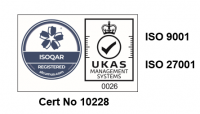Enhanced DBS Checks: Understanding the process
January 28th, 2025 by Daisy Birch
Enhanced DBS checks are a critical step in safeguarding vulnerable groups, such as children and vulnerable adults, by assessing the suitability of individuals for specific roles. Understanding the Enhanced DBS checking process is essential for identifying why some checks take longer than others and how to ensure a smooth application.

The five stages of the DBS checking process are:
• Stage 1: Application Received and Validated
• Stage 2: Police National Computer (PNC) Searched
• Stage 3: Adults’ and Children’s Barred Lists (If Requested)
• Stage 4: Search of Records Held by the Police
• Stage 5: DBS Certificate Printed
Stage 1: Application received and validated
The Enhanced DBS process begins when the Disclosure and Barring Service (DBS) receives an application. At this stage, the application is meticulously checked and validated to ensure all required information, such as name, address, and date of birth, is accurate and complete. This verification step confirms the applicant’s identity.
Applications submitted online are automatically rejected if mandatory fields are incomplete or the data fails validation.
Stage 2: Police National Computer (PNC) searched
Once validated, the application proceeds to a search of the Police National Computer (PNC). The PNC holds extensive information, including criminal records and intelligence across UK police forces. This step ensures that any relevant convictions, cautions, reprimands, or warnings linked to the applicant are identified.
Stage 3: Adults and Children’s Barred Lists (if requested)
For positions involving Regulated Activity, such as working closely with children or vulnerable adults, the application may be checked against the Adults’ and Children’s Barred Lists. These lists contain the names of individuals barred from working in these sensitive areas. If requested, the DBS will conduct a check to ensure that the applicant’s name does not appear on either of these lists.
Stage 4: Search of records held by the police
At this stage, the DBS sends the application to local police forces for additional checks. Police records may include non-conviction information, such as ongoing investigations or cases where the applicant has come to their attention. The goal is to ensure that all relevant data is considered when determining an individual’s suitability for a role.
If local police forces hold information, it is assessed against the applicant’s workforce category (adult or child) and disclosed if deemed relevant to the position.
Stage 5: DBS certificate printed
Once all checks are completed, the final step is printing the DBS certificate. This document, sent directly to the applicant, includes details of any convictions, cautions, or other relevant information. Typically, the certificate arrives within two weeks, though processing times may vary.
It is pivotal that you see the original certificate if it contains conviction information. Copies of the certificate should not be relied upon. More information about checking the security features of a paper certificate can found here
What is the police’s role in the DBS checking process?
Police involvement is pivotal in ensuring the accuracy of Enhanced DBS checks. In addition to providing data from the PNC, local police forces conduct thorough searches of their records, contributing crucial information to safeguard children and vulnerable adults.
While most checks are completed promptly, certain applications may take longer due to the complexity of the data or inter-agency communication. If an application is delayed beyond 60 days, escalation requests can be made.
What can be done to speed up a DBS check?
The DBS and local police forces do not prioritise applications or Umbrella Bodies, each application is processed in turn as they are submitted at stage 1. If an application has been with the police force for longer than 60 days, a request to escalate the application can be made.
The majority of checks are returned quickly with DDC’s average return time being 7 days with 76% returning in 5 days or less and 48% taking just 24 hours.
How can DDC help?
As a registered Umbrella Body since 2002, DDC provides expertise and reliable support for organisations managing DBS checks. By using DDC’s services, employers can streamline the Enhanced DBS checking process, saving time and ensuring compliance.
With DDC:
- Applications are tracked at every stage.
- Delayed applications are escalated with local police forces after 60 days.
- Support is available to ensure accuracy and minimise errors.
Get started today – Registration is quick, easy and FREE
Register Now or phone our team on 0116 260 3055





